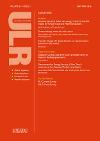Utilities Law Review - Volume 24 - Issue 2

Articles
All about security? What ‘de-risking’ in the EU and UK means for foreign trade and M&A transactions
Ingrid Hodgskiss
Travers Smith, London
Carsten Bormann
Oppenhoff, Cologne
In the face of growing geopolitical tensions and uncertainty about future international security developments, the EU and the UK have recently begun to adopt new economic security strategies and mechanisms that also support the introduction of new mechanisms to restrict foreign trade, such as the EU’s Foreign Subsidies Regulation or the Foreign Investment Screening Regulations, and the UK’s new National Security & Investment Act. The new economic strategies and mechanisms mark the return of ‘industrial policy’ thinking to European governance and are likely to further tighten existing regimes to enable authorities to address security concerns more directly. From an M&A perspective, the message is both simple and challenging: regulatory approvals will remain a critical part of international transactions for the foreseeable future and will continue to grow in importance
Greenwashing: meet risk with action
David Watkins, Smriti Sriram, Harry Hecht, Peter Wickham, Dean Hickey and George Murray
Slaughter and May, London
This article considers how to ensure that businesses’ sustainability strategies are resilient to greenwashing and provides an overview of the current greenwashing risk landscape. The authors note that what is voluntary at present is likely to become mandatory in the future. Managing today’s reputational risks, therefore, helps both to address immediate risks and mitigate future ones
Prismall v Google UK: latest decision on representative actions for data claims
Kate Steele
Hill Dickinson LLP, Liverpool
This High Court judgment of May 2023, concerning a claim for misuse of private information, highlights the problems faced by potential claimants looking to pursue a representative action for data claims. The decision indicates the court’s willingness to exercise its powers to strike out/give summary judgment in claims that do not meet the relevant de minimis thresholds before substantive costs are incurred by the parties
Case Comments
Litigation funding: Supreme Court provides clarity on litigation funding agreements
Moya Clifford
Professional Support Lawyer,
Hill Dickinson LLP, Manchester
The Supreme Court decision in PACCAR Inc & Others v Competition Appeal Tribunal & Others is of particular importance to collective claims in the CAT which are brought on an ‘opt-out’ basis. The court sent litigation funders back to the drawing board on the basis that Litigation Funding Agreements (LFAs) should be classified as agreements falling within the statutory definition of damages-based agreements (DBAs). As such, LFAs need to satisfy the statutory conditions for DBAs, failing which they are unenforceable
Department for Energy Security & Net Zero’s response to the Capacity Market consultation
Louise Dalton, Dalia Majumder-Russell, Juliet Stradling, Helen Raynsford and Alex Newton
CMS Cameron McKenna Nabarro Olswang LLP, London
Reforms proposed in this consultation are aimed at incentivising greater investment in low carbon technologies through closer alignment with the UK’s net-zero commitments. This comment focuses on the government’s responses to three of the proposals, and the authors conclude that both government and industry are mindful of the need to update the Capacity Market regime in order to guarantee certainty of supply and to facilitate a progressive net-zero transition
EU Current Survey
Energy – Telecommunications and Digital Economy – Post – Transport
Edited by Peter Alexiadis
King’s College, London, and Brussels
and
Christoph Raab
Binder Groesswang, Vienna
EU news: Malta
Implementation of the EU Digital Services Act
Paul Edgar Micallef
University of Malta
UK Current Survey
Broadcasting – Energy – Post – Telecommunications – Post – Transport
Edited by Philippa Young
Solicitor, Oxford
